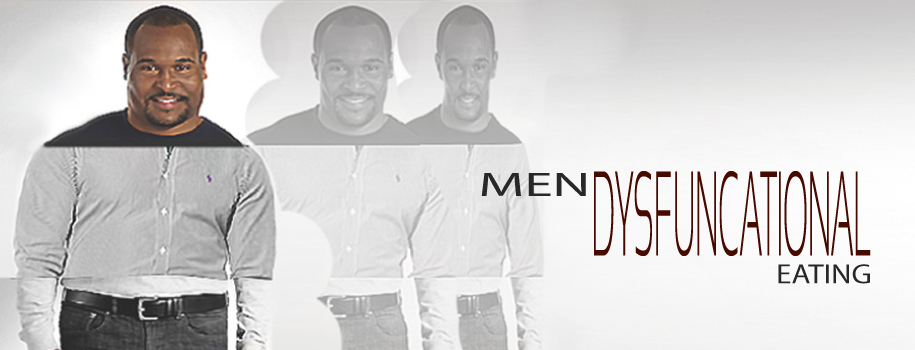
MEN: DYSFUNCATIONAL EATING
There’s been a noticeable increase in the publicity of menswear and grooming products but // Magazine wanted to know if the rate of eating disorders in men has increased as well. // Magazine took a minute to discuss the issue with Dr. Tamara Jackson, Tranquil Haven, about this deadly issue.
// Magazine: Eating disorder, why is it not as vocal with men as it is with women?
Dr. Jackson: Well it’s interesting because even though it’s more vocal for women, a lot of women struggle with talking about eating disorders. There’s a tremendous amount of stigma and shame that is associated with that, even for women. So especially, when you bring men into the picture that shame and stigma is further increased because it’s thought of being a women’s issue. Also, if you have that issue there is something wrong with you or you’re especially weak. So there’s already a stigma with it that’s even more pronounced when it comes to men.
// Magazine: What are some of the signs?
Dr. Jackson: Some of the signs can be a little different with men as opposed to women. The signs with women, especially with anorexia, is like the tendency to be very thin and underweight. However, a lot of times with men that is harder to tell because their disorder may manifest in the sense that their very focus is on being lean, muscular, having the six pack, making sure the pecs look good, and the biceps. So even though you don’t look at them and see a person that looks unhealthy, it’s the mentality and the mentality focuses on being overly concerned with appearance and basically body image disturbances. Example, they will look in the mirror and focus on parts of their body that are too fat, areas that may need developing more, or are just very hypercritical about their appearance and body and constantly wanting it and needing it to be different.
// Magazine: I experienced that with a former coworker. He is a fitness instructor part-time. However, he’s very hypercritical about his own body. He feels if he is able to pinch any body fat, he needs to improve on his physique.
Dr. Jackson: That’s a good example. With all the men you see working out in the gym, most of them are in great shape. However, a lot of times when you talk to them, their mentality, in regards to how they look, you’ll hear about their rigid eating patterns, their rules stating what they can eat, what they cannot eat, when they should eat, how it should be prepared, etc. Anytime they veer from that it causes a lot of anxiety. So a lot of times it can be hard to go out with friends and enjoy a meal or drink without there being a lot of obsessing and planning over it. Another issue is the preoccupation with calories. There are a lot of rules around what and how they are eating.
// Magazine: Is this disorder more prevalent in the gay community?
Dr. Jackson: You do have eating disorders among men who are heterosexual; but the rates are a bit higher for gay men. I think it is because of the increased focus on the physical appearance and so that heightens it.
// Magazine: Bespoke men’s fashion is everywhere. While the slim tailored suit trend is current, do you feel it is a contributor to this unhealthy lifestyle?
Dr. Jackson: I think in the last few decades, a lot of the focus, in regards to body appearance, has been on females. Today, you have a lot of male products and salons. Therefore, men in general are paying more attention to their physical appearance. Men are having more plastic surgery. Some are having their pecs increased as well as their calves. In a lot of ways they feel the pressure but not to the extent as women. I think that is further heightened in the fashion industry or any industry really, where the focus is physical.
Dr. Jackson: It’s estimated that 8 million people have eating disorders. Of that, it is estimated that 10-15 percent are men. But that is an underestimation because you have a lot people with eating disorder who do not seek treatment and are suffering from it in silent. Both men and women are suffering, but especially men.
// Magazine: Does the stereotypical upbringing of males play a factor in why men are silent about this disorder?
Dr. Jackson: Absolutely, that plays a big role. I think men are less likely to seek treatment for eating disorders than women because of the stigma of seeking treatment. In addition to the fact that men see eating disorders as something that is thought of as a feminine trait or is seen as being vain, there is a lot of misunderstanding about eating disorders and the symptomatology in the general population. Because of this, people have a fear that if they were to speak out and tell people like friends and family members, they will be ostracized. But what people typically see, which is far more the case than not, is that their family and friends are really open and understanding about it. And people say time and time again that they feel a tremendous amount of relief from being able to open up and tell that one friend or family member. It’s a relief because so much shame is attached to having an eating disorder and speaking about it is the first big step in stomping out that shame.
// Magazine: Are there any programs, communities or self help groups available for men with an eating disorder?
Dr. Jackson: There are more and more of those every year. There are a couple of blogs that cater to men with eating disorders and some of the centers that women attend have started working with men as well. The truth of the matter is there are services out there; however, for men, they have to search a little harder because these services are more geared toward women. However, more and more people have noticed this and have started researching men with eating disorders.
// Magazine: What treatments do you suggest?
Dr. Jackson: I definitely suggest therapy and counseling as soon as possible. Some other approaches which have known to be effective with eating disorders are cognitive behavior therapy. It really focuses on thought patterns, belief systems, as well as behavioral patterns that are getting in the way to leading a more adaptive way of eating and having a better approach to health. Another approach is to look at interpersonal relationships, and address the issues of depression and anxiety. Because often with eating disorders it doesn’t just exist as an eating disorder by itself. It tends to accompany or trigger mood swings. I think treatment is most effective when it addresses those as well because a lot of times the focus on eating and body is a way of coping sometimes with other things that are going on that they can’t control. The key part of treatment is helping people understand what are those stressful triggers in their life and understanding that if there is some depression, what’s that about and getting treatment for some of those underlying issues.
// Magazine: What can we, as a society, do to decrease these numbers?
Dr. Jackson: Images, media, and the fashion industry play a tremendous role. It would be helpful to make an effort to promote an acceptance of all sizes and really expand the concept of what beauty is. Parents should avoid making comments about body types or constantly judging a child on what they are eating in order to not ignite guilt.
// Magazine: Do you feel that the medical industry has used eating disorders as a way to make a profit?
Dr. Jackson: There is definitely the kind of mentality of the magic pill. Whether it’s a prescription drug, various supplements or diets, I’ve seen many times that those approaches don’t work. They keep people in a cycle. It’s like they will try it and they’ll lose the weight to get to the size that they want but inevitably they can’t maintain. It’s about lifestyle changes. Learning to eat a certain way, exercising and accepting your natural body instead of trying to force it to do something unnatural will be more beneficial. So until people realize that these little quick fixes are not going to last, they will remain in an unhealthy cycle.
Dr. Jackson: In addition, the yo-yo effect doesn’t help. You lose the weight and you like the way you look but you can’t maintain it. This increases a sense of failure making it harder to find a way that works for that person.□
If you are suffering from an eating disorder or know anyone that is please take the first step to overcoming this issue by acknowledging it. Talk to your buddies, a doctor, or a family member. You are not alone. The world needs you.
